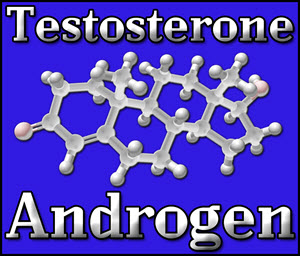Introduction
Hyperthyroidism, a condition characterized by an overactive thyroid gland, presents unique challenges and considerations in the context of American males. The role of endocrinology in managing this condition is pivotal, encompassing a broad spectrum of diagnostic and therapeutic strategies. This article aims to provide a comprehensive review of the current approaches to diagnosing and treating hyperthyroidism in American males, emphasizing the importance of tailored medical interventions.
Epidemiology and Clinical Presentation
Hyperthyroidism affects approximately 1% of the American population, with a notable impact on males, who may experience different symptoms and outcomes compared to females. Common manifestations in men include weight loss despite increased appetite, palpitations, heat intolerance, and irritability. These symptoms can significantly impair quality of life and require prompt medical attention. Endocrinologists play a crucial role in recognizing these signs early and initiating appropriate management strategies.
Diagnostic Methods
Accurate diagnosis is the cornerstone of effective hyperthyroidism management. In American males, the diagnostic process often begins with a thorough clinical assessment, followed by laboratory tests. Blood tests measuring thyroid-stimulating hormone (TSH) and free thyroxine (FT4) levels are essential. A low TSH level with elevated FT4 is indicative of hyperthyroidism. Additionally, imaging studies such as thyroid ultrasound or radioactive iodine uptake scans can help identify the underlying cause, whether it be Graves' disease, toxic multinodular goiter, or thyroiditis. These diagnostic tools are critical in formulating a precise treatment plan.
Treatment Strategies
The management of hyperthyroidism in American males involves a multifaceted approach, tailored to the individual's specific condition and overall health status. Antithyroid drugs, such as methimazole and propylthiouracil, are commonly used as first-line therapy to normalize thyroid hormone levels. These medications work by inhibiting the production of thyroid hormones, providing symptomatic relief and time for further evaluation of the underlying cause.
For patients with Graves' disease, radioactive iodine therapy is a highly effective treatment option. This procedure involves the administration of radioactive iodine, which is taken up by the thyroid gland and leads to its destruction over time. While this treatment is generally well-tolerated, it requires careful monitoring and follow-up to manage potential side effects and ensure the patient's thyroid function remains stable.
In cases where antithyroid drugs and radioactive iodine are not suitable or effective, surgical intervention may be necessary. Thyroidectomy, the surgical removal of part or all of the thyroid gland, is considered for patients with large goiters, those who are pregnant, or individuals who cannot tolerate other treatments. Post-surgery, patients typically require lifelong thyroid hormone replacement therapy to maintain normal hormone levels.
Long-term Management and Follow-up
Long-term management of hyperthyroidism in American males involves regular monitoring of thyroid function and adjustment of treatment as needed. Endocrinologists must also address potential complications, such as osteoporosis and cardiovascular issues, which can arise from prolonged hyperthyroidism. Patient education and lifestyle modifications, including a balanced diet and regular exercise, are integral to managing the condition effectively.
Conclusion
The management of hyperthyroidism in American males requires a comprehensive and individualized approach, guided by the expertise of endocrinologists. Through accurate diagnosis, tailored treatment strategies, and diligent follow-up, it is possible to achieve optimal outcomes and improve the quality of life for affected individuals. As research continues to evolve, ongoing advancements in diagnostic and therapeutic methods will further enhance our ability to manage this challenging condition effectively.
Contact Us Today For A Free Consultation

- Hormonal Imbalances and Sleep Disorders: Impact on American Men's Health and Interventions [Last Updated On: March 7th, 2025] [Originally Added On: March 7th, 2025]
- Vitamin D's Crucial Role in Endocrine Health for American Males [Last Updated On: March 16th, 2025] [Originally Added On: March 16th, 2025]
- Endocrinology's Role in Managing Chronic Fatigue in American Males [Last Updated On: March 17th, 2025] [Originally Added On: March 17th, 2025]
- Dietary Strategies for Enhancing Endocrine Health in American Men [Last Updated On: March 19th, 2025] [Originally Added On: March 19th, 2025]
- Endocrinology's Impact on Weight Management for American Males: Hormones and Strategies [Last Updated On: March 19th, 2025] [Originally Added On: March 19th, 2025]
- Hormonal Changes in Aging American Men: Impacts and Management Strategies [Last Updated On: March 19th, 2025] [Originally Added On: March 19th, 2025]
- Endocrine Health and Cancer Risk in American Men: A Comprehensive Analysis [Last Updated On: March 19th, 2025] [Originally Added On: March 19th, 2025]
- Autoimmune Endocrine Disorders in Males: Symptoms, Diagnosis, and Treatment Strategies [Last Updated On: March 19th, 2025] [Originally Added On: March 19th, 2025]
- PCOS in Transgender Men: Diagnosis, Management, and Holistic Care Approaches [Last Updated On: March 20th, 2025] [Originally Added On: March 20th, 2025]
- Endocrine Disruptors: Impact on American Male Health and Mitigation Strategies [Last Updated On: March 21st, 2025] [Originally Added On: March 21st, 2025]
- Lifestyle Impacts on Endocrine Health: A Guide for American Men [Last Updated On: March 21st, 2025] [Originally Added On: March 21st, 2025]
- Hormonal Optimization in Sports: Enhancing Performance Ethically for American Male Athletes [Last Updated On: March 21st, 2025] [Originally Added On: March 21st, 2025]
- Male Infertility and Endocrinology: Understanding Hormonal Impacts on Fertility [Last Updated On: March 21st, 2025] [Originally Added On: March 21st, 2025]
- Gout in American Males: Endocrine Influences and Management Strategies [Last Updated On: March 22nd, 2025] [Originally Added On: March 22nd, 2025]
- Endocrinology's Impact on Sexual Health in American Males: Hormones, Dysfunction, and Holistic Care [Last Updated On: March 22nd, 2025] [Originally Added On: March 22nd, 2025]
- Hormonal Imbalances and Kidney Health: Critical Insights for American Men [Last Updated On: March 23rd, 2025] [Originally Added On: March 23rd, 2025]
- Endocrine Health and Mental Well-being: A Comprehensive Guide for American Males [Last Updated On: March 23rd, 2025] [Originally Added On: March 23rd, 2025]
- Alcohol's Impact on Endocrine System in American Males: A Comprehensive Analysis [Last Updated On: March 23rd, 2025] [Originally Added On: March 23rd, 2025]
- Hormonal Influences on Joint Health in American Men: A Comprehensive Guide [Last Updated On: March 23rd, 2025] [Originally Added On: March 23rd, 2025]
- Hormonal Impacts on Men's Immune Health in the U.S.: Insights and Strategies [Last Updated On: March 24th, 2025] [Originally Added On: March 24th, 2025]
- Endocrine-Neurological Interplay in American Men: Diagnosis, Management, and Future Research [Last Updated On: March 24th, 2025] [Originally Added On: March 24th, 2025]
- Hormonal Imbalances and Their Role in Managing Male Depression in America [Last Updated On: March 24th, 2025] [Originally Added On: March 24th, 2025]
- Managing Endocrine Disorders in American Men with Autoimmune Diseases: A Comprehensive Guide [Last Updated On: March 24th, 2025] [Originally Added On: March 24th, 2025]
- Hormonal Dynamics and Skin Health in American Men: Androgens, Acne, Aging, and Lifestyle [Last Updated On: March 24th, 2025] [Originally Added On: March 24th, 2025]
- Endocrine Health and Prostate Cancer: Insights for American Men [Last Updated On: March 25th, 2025] [Originally Added On: March 25th, 2025]
- Managing Endocrine Disorders and Heart Disease in American Men: Strategies and Insights [Last Updated On: March 25th, 2025] [Originally Added On: March 25th, 2025]
- Exercise Impacts on Endocrine Function in American Males: Hormonal Health Benefits [Last Updated On: March 25th, 2025] [Originally Added On: March 25th, 2025]
- Endocrine Disorders in Men: Impact on Skin Health and Management Strategies [Last Updated On: March 25th, 2025] [Originally Added On: March 25th, 2025]
- Managing Type 2 Diabetes in American Men: Endocrine Insights and Strategies [Last Updated On: March 25th, 2025] [Originally Added On: March 25th, 2025]
- Endocrine System and Liver Health in American Males: A Comprehensive Analysis [Last Updated On: March 25th, 2025] [Originally Added On: March 25th, 2025]
- Endocrine and Gastrointestinal Health Management Strategies for American Men [Last Updated On: March 25th, 2025] [Originally Added On: March 25th, 2025]
- Hormonal Influences on Muscle Health in American Males: A Comprehensive Overview [Last Updated On: March 25th, 2025] [Originally Added On: March 25th, 2025]
- Endocrine Health's Impact on Respiratory Function in American Males: A Comprehensive Overview [Last Updated On: March 25th, 2025] [Originally Added On: March 25th, 2025]
- Exploring ADHD and Endocrinology: Hormonal Imbalances and New Treatment Avenues [Last Updated On: March 26th, 2025] [Originally Added On: March 26th, 2025]
- Exploring Endocrinological Interventions for PTSD in American Males [Last Updated On: March 26th, 2025] [Originally Added On: March 26th, 2025]
- Endocrinology's Role in Managing Insomnia Among American Males [Last Updated On: March 26th, 2025] [Originally Added On: March 26th, 2025]
- Endocrinology's Vital Role in Treating Male Eating Disorders in the U.S. [Last Updated On: March 26th, 2025] [Originally Added On: March 26th, 2025]
- Stress Impact on Male Endocrine Health: Hormones and Holistic Management Strategies [Last Updated On: March 26th, 2025] [Originally Added On: March 26th, 2025]
- Smoking's Impact on Endocrine Health in American Men: Testosterone, Thyroid, and More [Last Updated On: March 26th, 2025] [Originally Added On: March 26th, 2025]
- Hormonal Imbalances and Hearing Loss in American Males: Causes and Prevention [Last Updated On: March 27th, 2025] [Originally Added On: March 27th, 2025]
- Hormonal Imbalances and Foot Health: A Guide for American Men [Last Updated On: March 27th, 2025] [Originally Added On: March 27th, 2025]
- Caffeine's Impact on Endocrine Health in American Males: Cortisol, Insulin, Testosterone, Thyroid [Last Updated On: March 27th, 2025] [Originally Added On: March 27th, 2025]
- Endocrine Health and Vision: Insights for American Males [Last Updated On: March 27th, 2025] [Originally Added On: March 27th, 2025]
- Hormonal Fluctuations and Oral Health in American Men: Insights and Recommendations [Last Updated On: March 28th, 2025] [Originally Added On: March 28th, 2025]
- Hormonal Hair Loss in American Men: Causes, Treatments, and Future Research [Last Updated On: March 28th, 2025] [Originally Added On: March 28th, 2025]
- Hormonal Imbalances and Male Anxiety: Endocrinological Insights and Treatments in the USA [Last Updated On: March 28th, 2025] [Originally Added On: March 28th, 2025]
- Sleep's Impact on Endocrine Health: Key Hormones and Practical Sleep Improvement Tips for American Males [Last Updated On: March 28th, 2025] [Originally Added On: March 28th, 2025]
- Endocrine System's Impact on Digestive Health in American Males: A Comprehensive Overview [Last Updated On: March 28th, 2025] [Originally Added On: March 28th, 2025]
- Nutrition's Impact on Endocrine Health in American Males: Key Nutrients and Diets [Last Updated On: March 29th, 2025] [Originally Added On: March 29th, 2025]
- Endocrine Health and Nail Changes in American Males: A Vital Connection [Last Updated On: March 29th, 2025] [Originally Added On: March 29th, 2025]
- Endocrinological Approaches Enhance Bipolar Disorder Treatment in American Men [Last Updated On: March 30th, 2025] [Originally Added On: March 30th, 2025]
- Endocrine Disorders and Eye Health: Management Strategies for American Men [Last Updated On: March 31st, 2025] [Originally Added On: March 31st, 2025]
- Endocrine Health and Hand Conditions in American Males: Insights and Management [Last Updated On: April 1st, 2025] [Originally Added On: April 1st, 2025]
- Endocrine Disorders and Ear Health: A Comprehensive Guide for American Men [Last Updated On: April 1st, 2025] [Originally Added On: April 1st, 2025]
- Hormonal Fluctuations and Nasal Health in American Men: Symptoms and Management [Last Updated On: April 1st, 2025] [Originally Added On: April 1st, 2025]
- Hydration's Crucial Role in Endocrine Health for American Males [Last Updated On: April 3rd, 2025] [Originally Added On: April 3rd, 2025]
- Endocrine Health and Throat Conditions in American Males: Hormonal Impacts and Management [Last Updated On: April 5th, 2025] [Originally Added On: April 5th, 2025]
- Schizophrenia in Males: The Role of Endocrinology in Treatment and Management [Last Updated On: April 6th, 2025] [Originally Added On: April 6th, 2025]
- Managing Endocrine Disorders in American Men with Lung Conditions: An Endocrinological Approach [Last Updated On: April 6th, 2025] [Originally Added On: April 6th, 2025]
- Dietary Supplements' Impact on Endocrine Health in American Males: A Comprehensive Analysis [Last Updated On: April 8th, 2025] [Originally Added On: April 8th, 2025]
- Hormonal Balance and Heart Health: A Guide for American Men [Last Updated On: April 9th, 2025] [Originally Added On: April 9th, 2025]
- Exploring Hormonal Influences on Autism in American Males: Endocrine Insights and Therapies [Last Updated On: April 10th, 2025] [Originally Added On: April 10th, 2025]
- Endocrine System's Impact on Blood Health in American Males: Hormones, Disorders, and Management [Last Updated On: April 10th, 2025] [Originally Added On: April 10th, 2025]
- Mental Health's Impact on Endocrine Function in American Males: An Integrated Approach [Last Updated On: April 11th, 2025] [Originally Added On: April 11th, 2025]
- Exploring Endocrine Approaches to Treating OCD in American Males [Last Updated On: April 11th, 2025] [Originally Added On: April 11th, 2025]
- Endocrine and Nerve Health in American Males: Hormones, Disorders, and Lifestyle Impact [Last Updated On: April 11th, 2025] [Originally Added On: April 11th, 2025]
- Managing Endocrine Disorders in American Men with Kidney Disease: A Comprehensive Guide [Last Updated On: April 13th, 2025] [Originally Added On: April 13th, 2025]
- Hormonal Balance and Brain Health in American Men: Endocrinology Insights [Last Updated On: April 13th, 2025] [Originally Added On: April 13th, 2025]
- Hormonal Influences on Skin Health in American Men: A Comprehensive Guide [Last Updated On: April 15th, 2025] [Originally Added On: April 15th, 2025]
- Managing Endocrine Disorders in Men with Muscle Conditions: A Comprehensive Guide [Last Updated On: April 16th, 2025] [Originally Added On: April 16th, 2025]
- Exploring Endocrine Therapy for Managing ADD Symptoms in American Males [Last Updated On: April 16th, 2025] [Originally Added On: April 16th, 2025]
- Endocrinology's Crucial Role in Treating Male Eating Disorders in the USA [Last Updated On: April 16th, 2025] [Originally Added On: April 16th, 2025]
- Endocrine Disorders and Heart Health: Management Strategies for American Men [Last Updated On: April 17th, 2025] [Originally Added On: April 17th, 2025]
- Lifestyle Choices Impact Endocrine Health in American Males: Diet, Exercise, Stress, Sleep, Substance Abuse [Last Updated On: April 17th, 2025] [Originally Added On: April 17th, 2025]
- Aging and Endocrine Function in American Males: Impacts and Management Strategies [Last Updated On: April 17th, 2025] [Originally Added On: April 17th, 2025]
- Endocrine Health and Liver Function: Impacts on American Males' Wellness [Last Updated On: April 19th, 2025] [Originally Added On: April 19th, 2025]
- Hormonal Influences on Bone Health in Aging American Men [Last Updated On: April 19th, 2025] [Originally Added On: April 19th, 2025]
- Endocrine Health's Impact on Joint Function in American Males: Hormonal Connections [Last Updated On: April 19th, 2025] [Originally Added On: April 19th, 2025]
- Endocrinology's Impact on Male Health: Hormones, Aging, and Wellness [Last Updated On: April 21st, 2025] [Originally Added On: April 21st, 2025]
- Thyroid Health in American Men: Understanding Disorders, Symptoms, and Management [Last Updated On: April 22nd, 2025] [Originally Added On: April 22nd, 2025]
Word Count: 543




















